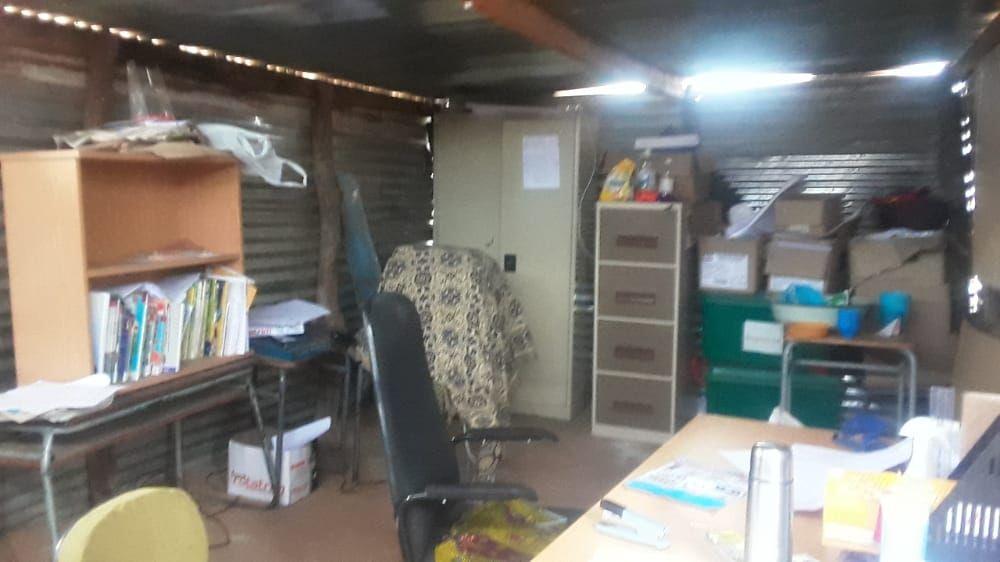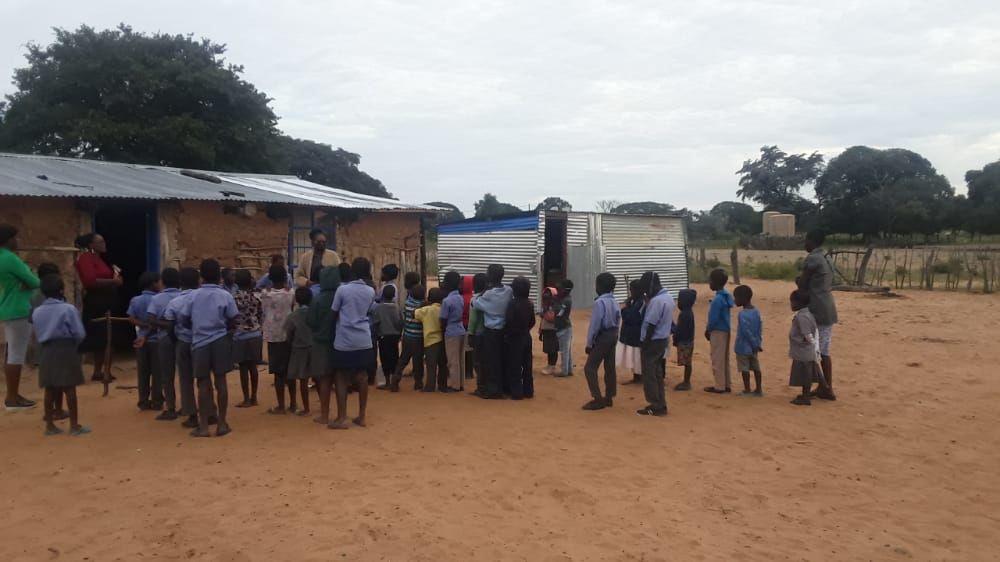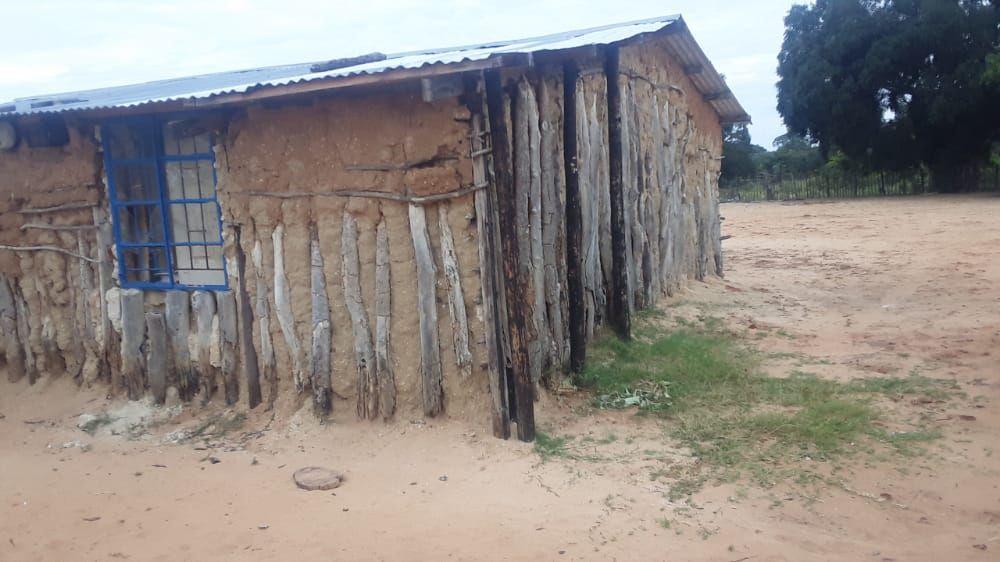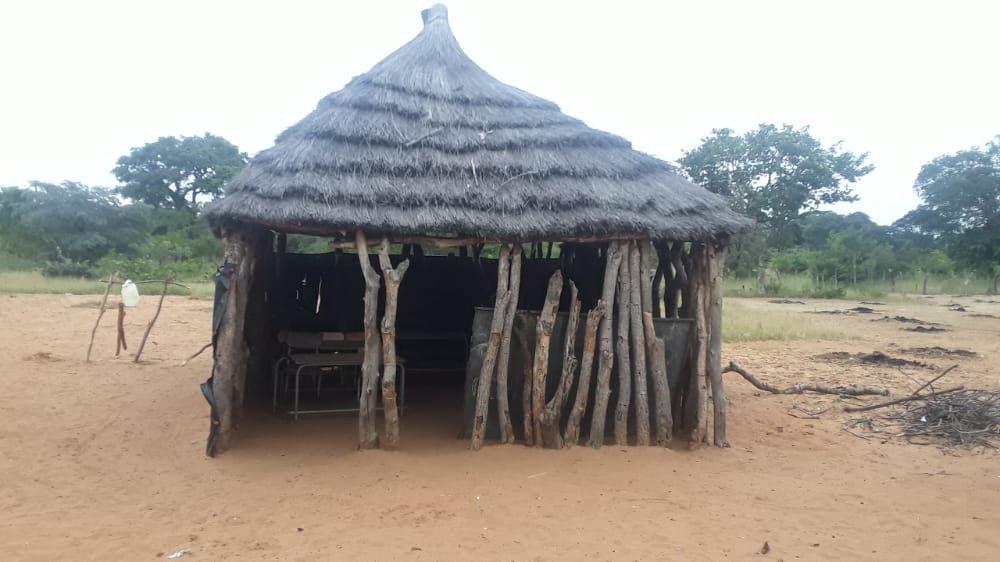Remaining committed despite challenges
School in Kavango West continues to face numerous trials
Mariselle Stofberg
Sitenda Junior Primary School is approximately 36 km from Rundu along the B1 road in the Kavango West Region.
The school, which has 30 learners, is facing numerous challenges.
Currently the school has three teachers and makes use of three temporary structures and one hut for teaching.
“One of the challenges we face is the long distances our learners have to walk to school every day. Our classrooms are not ideal, because we have to make use of shacks made of corrugated iron and a hut. Most of the learners are from vulnerable groups and their parents struggle to provide for their basic needs,” says principal Theresia Kantema.
The school has no toilets for the learners, no office for teachers and lacks basic technology and computer facilities for administration purposes.
“We wish we could help all our learners with what they need. We would give anything for proper school uniforms, better classrooms and playground facilities for extramural activities. For our teachers, we hope to one day have the needed equipment, an admin block and storage rooms to help them to continue the amazing work they do,” Kantema says.
The school hopes to erect a signpost, better fencing for security purposes, flush toilets and a small hostel to accommodate marginalised learners and vulnerable children.
Despite the challenges, the school and its staff remain committed to help these learners, who would have no other school if they were to close their doors.
The school was established in the year 2000 with just five learners under a tree known as mugoro by Faustinus Muronga. They later built two traditional huts for grade 1 and 2.
Felician Shampapi joined the school as their second teacher in 2003 and Pauline Munango took over from March 2006 to 2014. Kantema took up her role as principal in 2016.
The government assists the school through a school feeding programme, a Universal Primary Education grant (UPE) and they receive some support from their community as well to remain afloat.
“Our community helps with cooking meals for the children, cleaning the school yard and are always willing to lend an extra hand,” Kantema says.
They aim to provide quality teaching by laying the foundation of knowledge and equipping learners with an environment needed for effective learning.
“As an experienced teacher, I would like to say that education is vital to a child. It opens their understanding and knowledge, which will help them to be successful in everything they do in life. Through education we can help them to cope in the environment they live in,” Kantema says.
She believes that teachers play a vital role in the community. “Young teachers should not panic when they happen find themselves in situations like we are facing at the moment. They should know that teaching is their calling and community is their life. They need to understand that everything exists because of somebody’s ideas,” she says.
“They must love their work, their learners and the community so that they can continue to develop and grow their community.”
Mariselle Stofberg
Sitenda Junior Primary School is approximately 36 km from Rundu along the B1 road in the Kavango West Region.
The school, which has 30 learners, is facing numerous challenges.
Currently the school has three teachers and makes use of three temporary structures and one hut for teaching.
“One of the challenges we face is the long distances our learners have to walk to school every day. Our classrooms are not ideal, because we have to make use of shacks made of corrugated iron and a hut. Most of the learners are from vulnerable groups and their parents struggle to provide for their basic needs,” says principal Theresia Kantema.
The school has no toilets for the learners, no office for teachers and lacks basic technology and computer facilities for administration purposes.
“We wish we could help all our learners with what they need. We would give anything for proper school uniforms, better classrooms and playground facilities for extramural activities. For our teachers, we hope to one day have the needed equipment, an admin block and storage rooms to help them to continue the amazing work they do,” Kantema says.
The school hopes to erect a signpost, better fencing for security purposes, flush toilets and a small hostel to accommodate marginalised learners and vulnerable children.
Despite the challenges, the school and its staff remain committed to help these learners, who would have no other school if they were to close their doors.
The school was established in the year 2000 with just five learners under a tree known as mugoro by Faustinus Muronga. They later built two traditional huts for grade 1 and 2.
Felician Shampapi joined the school as their second teacher in 2003 and Pauline Munango took over from March 2006 to 2014. Kantema took up her role as principal in 2016.
The government assists the school through a school feeding programme, a Universal Primary Education grant (UPE) and they receive some support from their community as well to remain afloat.
“Our community helps with cooking meals for the children, cleaning the school yard and are always willing to lend an extra hand,” Kantema says.
They aim to provide quality teaching by laying the foundation of knowledge and equipping learners with an environment needed for effective learning.
“As an experienced teacher, I would like to say that education is vital to a child. It opens their understanding and knowledge, which will help them to be successful in everything they do in life. Through education we can help them to cope in the environment they live in,” Kantema says.
She believes that teachers play a vital role in the community. “Young teachers should not panic when they happen find themselves in situations like we are facing at the moment. They should know that teaching is their calling and community is their life. They need to understand that everything exists because of somebody’s ideas,” she says.
“They must love their work, their learners and the community so that they can continue to develop and grow their community.”







Kommentaar
Republikein
Geen kommentaar is op hierdie artikel gelaat nie